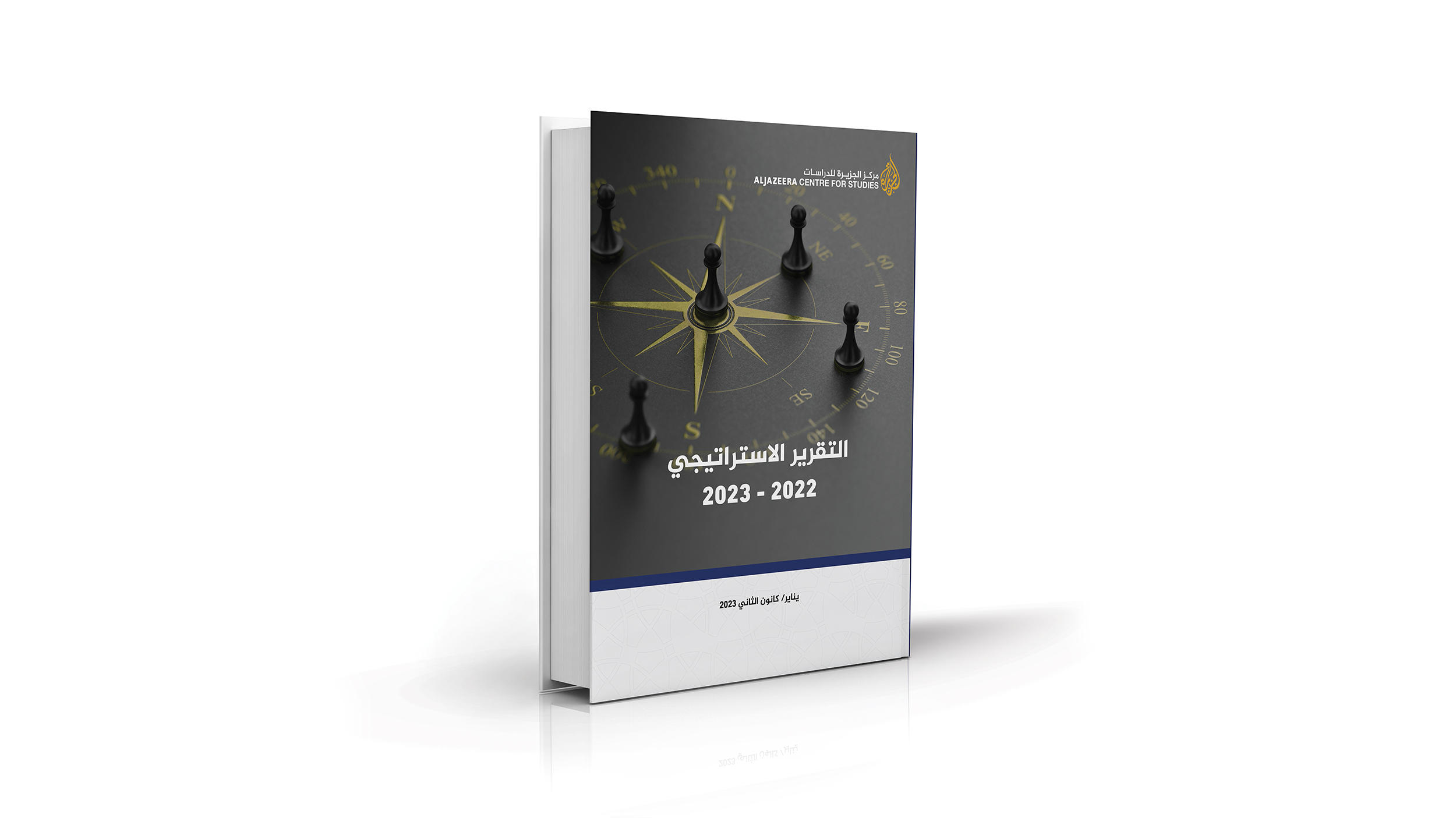
Al Jazeera Centre for Studies has released its first strategic report (in Arabic) on 15 January 2023, in which it presents a focused reading of the most prominent events of 2022 at the international and regional levels as well as the implications of these events on domestic conditions in Arab countries. The report also includes a forecast of the general directions of the events of 2023, weighing the possibilities and anticipating certain scenarios based on available data.
The new strategic report is among the centre’s research output, which includes books, peer-reviewed periodicals, dossiers, papers and analyses of current affairs.
In addition to monitoring current events and anticipating their future developments, the writers of the report interact with a range of crises in the world that pose a serious threat to its security and stability, starting with the Russian war on Ukraine, to the escalating tension between China and the United States in the Pacific region against the background of the conflict over Taiwan and in the South China Sea, and ending with other global crises of varying severity such as rising energy prices, the economic recession, climate change and cyber wars.
The report deduces that the Arab region with the exception of the Gulf countries, which achieved significant financial returns in 2022 due to the increase in demand for and prices of energy in light of the Russian war on Ukraine, is experiencing exacerbating political, economic and security crises.
As for the countries of the Arab Spring, the report mentions that most of their transitional paths since the beginning of the past decade have turned into political impasses and armed conflicts; that these countries have not yet succeeded in overcoming their crises, which are open to all possibilities; and that regional interventions and international conflicts have only aggravated them.
Regarding expectations for 2023, the report states that this year will not present many solutions to the crises, and indicates that most of them are likely to become more complex. In fact, it argues that the Russian-Ukrainian war is not heading towards an end, and that US-Chinese tension in the Pacific is not approaching appeasement or understanding between the two superpowers. Similarly, it maintains that most of the indicators of the crises in the Arab region in general are not heading towards a solution, and that the global environment is not conducive to finding just settlements in the foreseeable future. The report asserts that the peoples of the region, with the exception of the Gulf, are only going to experience further suffering because of worsening economic crises, inflation and the decline in purchasing power. It concludes by stating that, in the absence of solutions and the decline in opportunities for national dialogue, it is not unlikely that a number of Arab countries will witness social tensions, and waves of popular protests may be more violent than those the region witnessed in the previous stages.
The strategic report was prepared by researchers at the centre as well as collaborating researchers distinguished in their fields of specialisation from different Arab countries. It is available (in Arabic) here.